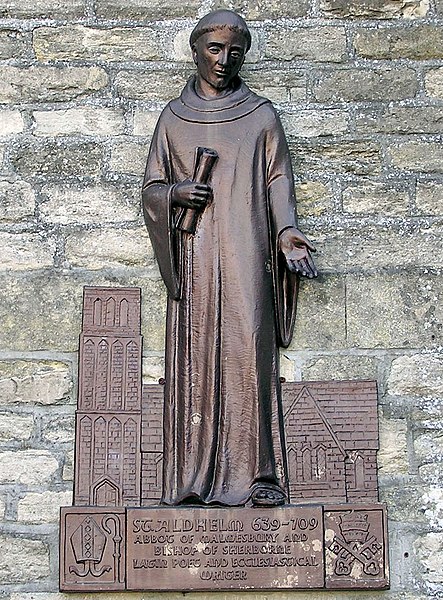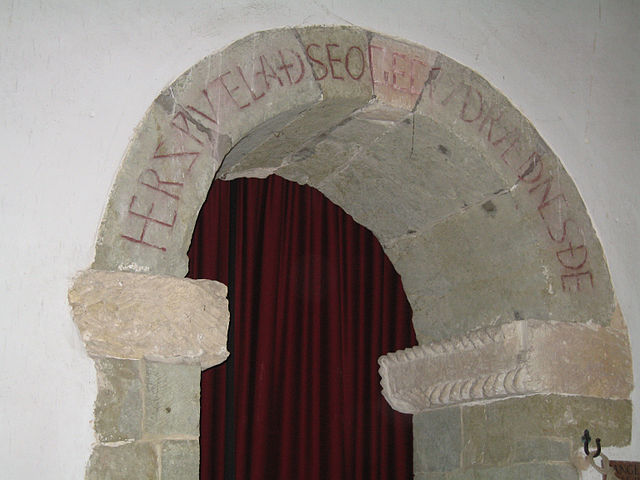Aldhelm, Abbot of Malmesbury Abbey, Bishop of Sherborne, and a writer and scholar of Latin poetry, was born before the middle of the 7th century. He is said to have been the son of Kenten, who was of the royal house of Wessex. He was certainly not, as his early biographer Faritius asserts, the brother of King Ine. After his death he was venerated as a saint, his feast day being the day of his death, 25 May.
Stained glass window showing Aldhelm, installed in St Aldhelm's Church, Malmesbury in 1938
Wall plaque at the Catholic Church of St Aldhelm, Malmesbury. The inscription says 'St Aldhelm 639–709, Abbot of Malmesbury and Bishop of Sherborne, Latin Poet and Ecclesiastical Writer.'
Conceptual statue of St Aldhelm in Sherborne Abbey by Marzia Colonna
Bedminster, Bristol
Old English, or Anglo-Saxon, is the earliest recorded form of the English language, spoken in England and southern and eastern Scotland in the early Middle Ages. It developed from the languages brought to Great Britain by Anglo-Saxon settlers in the mid-5th century, and the first Old English literary works date from the mid-7th century. After the Norman Conquest of 1066, English was replaced for several centuries by Anglo-Norman as the language of the upper classes. This is regarded as marking the end of the Old English era, since during the subsequent period the English language was heavily influenced by Anglo-Norman, developing into what is now known as Middle English in England and Early Scots in Scotland.
Alfred the Great statue in Winchester, Hampshire. The 9th-century English King proposed that primary education be taught in English, with those wishing to advance to holy orders to continue their studies in Latin.
Her sƿutelað seo gecƿydrædnes ðe ('Here the Word is revealed to thee'). Old English inscription over the arch of the south porticus in the 10th century St Mary's parish church, Breamore, Hampshire
The first page of the Beowulf manuscript with its opening Hƿæt ƿē Gārde/na ingēar dagum þēod cyninga / þrym ge frunon... "Listen! We of the Spear-Danes from days of yore have heard of the glory of the folk-kings..."







